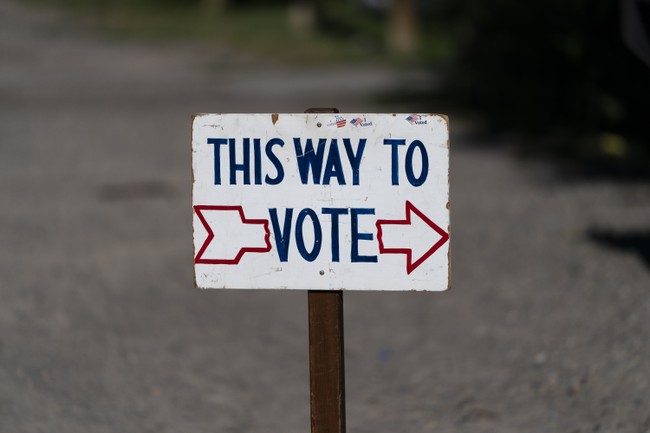


As RedState reported in 2023, Alabama waged court battles over its legislature's redistricting maps, which district judges deemed were in violation of the Voting Rights Act. With statewide and municipal races on the ballot in 2026, including County Commissioner races, certain groups are seeking to change the balance of power in one of Alabama's largest counties.
A federal judge on Tuesday ordered Alabama’s largest county to redraw county commission lines after ruling that the districts were unconstitutional because of racial gerrymandering.
U.S. District Judge Madeline H. Haikala ruled the county map was unconstitutional because race was the predominant factor when the Jefferson County Commission drew districts. The ruling came in a 2023 lawsuit that says the plan overly packed Black voters, who make up 40% of the county population, into just two districts.
“Because the 2021 plan violates the Fourteenth Amendment’s protection against racial gerrymandering, the Court permanently enjoins the Commission and its agents from using the 2021 plan in Jefferson County Commission elections,” Haikala wrote.
Dive Deeper: Federal Court Strikes Down Alabama's Redistricting Maps yet Again; What's the End Game?
Federal Court Picks Alabama Congressional Map That Carves out Separate Black District
At issue, according to the assistant counsel for the NAACP Legal Defense Fund, is that the existing plan crams Black voters into two districts, while attempting to maintain "set racial ratios" in the other three districts.
“It’s a problem of not just those two districts that were maintained at super majority Black status without consideration of what the Voting Rights Act required, but also an explicit attempt to maintain the racial ratios of Black voters to white voters in every other district,” Sadasivan said.
In 2026, all FIVE Jefferson County seats are up for grabs. Three of those seats are held by white Republicans, and two are held by Black Democrats. The one candidate who has declared he will defend his seat is 73 years old and battling cancer. Interesting optics and odds.
Birmingham, the second-largest city in Alabama, is also the county seat. Birmingham just reelected its Black mayor, Randall Woodfin, for a third term, and U.S. Rep. Shomari Figures won his first term from the redrawn Congressional map that was at issue in 2023. One can surmise that the push to redraw this county's voting map, while couched as seeking better representation for Jefferson County's Black residents, is an effort to realign that power in a certain direction.
Prove me wrong.
Here's a clue: The lead plaintiff is an activist and the co-founder of the Black Lives Matter Birmingham Chapter. She runs an organization called Faith & Works, which teaches faith communities how to be activists.
Cara McClure, the lead plaintiff in the lawsuit, said she is looking forward to the commission “coming to the table to finally draw a map that is fair to Black voters in the county.”
“The County Commission is responsible for so many things that impact our everyday life. The main thing is making sure every voice and every vote is heard and counted. And that’s not what has been happening,” McClure said, who is executive director of Faith and Works Statewide Civic Engagement Collective.
In a 2022 interview, McClure was asked about what a better Birmingham would include.
I think a better Birmingham would include more equity across the board, not just performance. I would imagine more investment in people, rather than more policing. It would look like having mental health services and job resources and community centers across the city. I can’t remember what percentage of poverty we have in Birmingham—but that number could be significantly lower.
As of 2023, that number is around 23 percent, but you would think that a so-called activist would know this and have more to say and do concerning it. Instead, she's chasing political power in order to achieve supposed equity. McClure ran for a public commissioner seat in 2018 and lost. Be on the lookout to see if she puts her hat in the ring for one of these commissioner seats.
The judge has given the commissioners and the plaintiffs 30 days to file a report on how a remedial redistricting plan is coming along. The judge also said in a ruling footnote that if the commission had been able to show that the higher percentage of Black voters was required in order for them to select the candidates of their choice, then the ruling might have gone a different way. The judge asserted that the commission did not show this evidence.
Alabama's primary election is May 19, 2026, and a ruling such as this has the effect of throwing the process into chaos and embedding uncertainty for anyone who is considering running for the County Commissioner seat, as well as whether the current commissioners will defend their places. These actions do not create election integrity; they only sow election confusion.
Perhaps that is the goal.
Editor’s Note: Do you enjoy RedState’s conservative reporting that takes on the radical left and woke media? Support our work so that we can continue to bring you the truth.
Join RedState VIP and use the promo code FIGHT to get 60% off your VIP membership!
